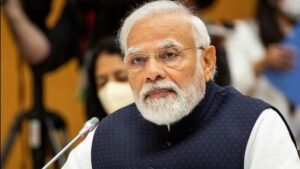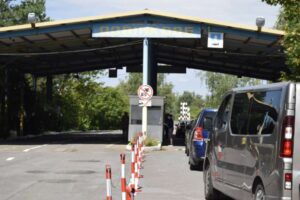
Stock indices of the largest countries in the Asia-Pacific region (APR) show a significant rise on Wednesday morning amid speculation that the world’s central banks may abandon the overly aggressive tightening of monetary policy.
A positive impetus to Asian markets was given by the increase in US indices by 2.8-3.3% on Tuesday. Wall Street had the best start to the quarter since 1938.
Investors evaluate the incoming statistical data, which often turn out to be worse than forecasts, and regard them as signals of a slowdown in the global economy. As a result, the world’s central banks may moderate the pace of interest rate hikes, Trading Economics notes.
Yesterday, the Reserve Bank of Australia (RBA) surprised the markets by raising its key rate by 25 basis points (bp) instead of the expected increase by 50 bp. The Australian Central Bank raised the rate by 50 bp. in June, July, August and September, in an effort to slow inflation, which the Central Bank expects to peak by the end of 2022 at around 8%.
On Wednesday it became known that retail sales in Australia rose by 0.6% in August compared to July after rising by 1.3% a month earlier. The index has been growing on a monthly basis for eight months in a row.
Meanwhile, New Zealand’s central bank on Wednesday again increased the rate by 50 bp, to the highest since April 2015 3.5% per annum. As the minutes of the meeting showed, the Central Bank management also discussed the possibility of raising the rate by 75 bp.
In South Korea, consumer prices (CPI index) in September rose by 5.6% in annual terms after rising by 5.7% in August, although analysts did not expect a change.
“We expect inflation to accelerate again in October. Gasoline prices may continue to decline, but gas and electricity tariffs were raised in early October, and the cost of fresh food is likely to increase ahead of winter,” said ING analyst Robert Carnell.
The value of the Japanese Nikkei 225 index rose by 0.6%.
The growth leaders among the components of the index are the shares of Nippon Yusen (+2.6%), Fast Retailing (+1.5%) and Keyence (+1.1%).
On Tuesday, Japanese Prime Minister Fumio Kishida urged Japanese companies to continue raising employee salaries at a rate in line with the country’s inflation rate.
The Hong Kong Hang Seng indicator soared 6.1%. On the eve of the Hong Kong stock exchange did not work, and the day before the index fell to a minimum in 11 years.
Pork producer WH Group jumped 7.8% in Hong Kong trading on news of the sale of its US and Canadian spice business to Saratoga Food.
Market value of Shenzhou Intl. Group climbs 12.4%, BYD Co. – by 9.3%, JD.Com – by 9.2%, Ping An Insurance – by 8.8%.
Exchanges in mainland China are closed due to the National Day holidays.
The South Korean Kospi index is growing by 0.4%.
The market value of one of the world’s largest chip manufacturers Samsung Electronics Co. increased by 1.1%, automaker Hyundai Motor – decreased by 2%.
The Australian S&P/ASX 200 added 1.7%.
The growth leader is the IT sector. Block Inc rose 7.3%, Seek Ltd – 5.9%, Xero Ltd. – by 3.5%. Shares of leading Australian banks are rising by more than 2%.
Fortescue Metals gained 2% after the mining company promised to double its planned investment in its green energy division.

At a meeting on Tuesday, the Government of Ukraine decided to transfer more than 800 enterprises with assets worth UAH 45 billion to the State Property Fund, First Deputy Economy Minister Denis Kudin said.
“This is the largest transfer of enterprises in the term of this government. In fact, now only assets in the field of energy, infrastructure, defense industry, culture and standardization and metrology remain subordinate to the ministries,” he wrote on Facebook.
According to available information, in this list, in particular, “Artyomsol”, “Konyarstvo of Ukraine”, NSC “Olympic”, “Odessa Film Studio”, coal enterprises.
Kudin clarified that so far the Fund has not been transferred to enterprises in respect of which restructuring or transformation to another organizational form is underway: for example, from a state enterprise to a state institution or state organization, or companies in a state of liquidation, or perform service functions.
“The next step is for the State Property Fund. We expect that by mid-November the Fund will be able to actually start working as a management body for these and other enterprises, regarding which the decision to transfer was made earlier,” said the first deputy head of the Ministry of Economy, who was previously responsible for managing state assets in the Fund .
Kudin recalled that the goal of the reform is to reduce the size of the state in the economy and stimulate private entrepreneurial initiative. According to him, the Fund will make a decision on privatization of some enterprises, while others will be consolidated into asset management holdings and will bring dividends to the budget.
The State Property Fund (SPF) of Ukraine would like to become a single manager of all state property in the country, while it is currently distributed among 96 different state departments, Rustem Umerov, appointed this week as its head, said.
Speaking at the Rebuilding Ukraine forum organized by UkraineInvest on Thursday, he expressed the opinion that such centralization would improve the efficiency of state property management.
The new head of the SPF, Rustem Umerov, appointed by the Rada in early September, previously announced plans to create a Sovereign Fund, which would unite the main state enterprises, as well as the intention to make the SPF the sole manager of all state property in the country, while currently it is distributed between 96 different government departments.

German Foreign Minister Annalena Burbock told her Polish counterpart Zbigniew Rau that Berlin would not pay reparations for World War II to Poland under any circumstances, the Associated Press reported on Tuesday.
“The question of reparations, as you know, from the point of view of the German authorities, is closed,” Burbock said during a press conference in Warsaw. The conference took place after ministerial talks on the subject.
In turn, Rau expressed the hope that Germany’s position could change.
On Monday, the head of the Polish Foreign Ministry sent a note to Germany, which requested about $1.3 trillion in reparations for material and other damage that Germany inflicted on Poland during the occupation in 1939-1945.

The negative balance of Ukraine’s foreign trade in goods in September amounted to $354 million, which is three times less than in August ($1,052.6 million), said Taras Kachka, Deputy Minister of Economy, Trade Representative of Ukraine.
“Export – $ 4.144 billion, 23% more than in August. Export volume – 9.66 million tons, 32% more than in August,” he wrote on Facebook.
According to the data presented by him, imports in September increased only by 1.9%, to $4.498 billion.
“September exports are more than $4 billion and more than 9 million tons for the first time since February 24,” the trade representative emphasized.
Kachka also pointed out that in September, exports of agro-industrial complex and food industry reached 6.928 million tons against 4.566 million tons in August and 2.985 million tons in July. This was the result of an increase in shipments by sea – from 1.436 million in July to 2.723 million tons in August and 5.175 million tons in September.
Export by railway transport in September decreased to 902.2 thousand tons compared to 970.5 thousand tons in August and 886.5 thousand tons in July, by road – to 849.6 thousand tons in September from 872 .4 thousand tons in August and 662.4 thousand tons in July.

President of Ukraine Volodymyr Zelensky had a conversation with Prime Minister of India Narendra Modi.
“With Indian Prime Minister Narendra Modi we discussed the so-called “referendums” that Russia recently held in the temporarily occupied territories of our state. We also talked about food, nuclear security, cooperation within international organizations, primarily the UN. It is important to strengthen the Ukrainian-Indian partnership amid Russian aggression against Ukraine,” Zelensky wrote on his Telegram channel.
He also thanked India for supporting the sovereignty and territorial integrity of Ukraine. “We appreciate the significant humanitarian assistance provided by the Indian government and the private sector,” the president said.
According to the press service of the head of state, during the conversation, Zelensky said that Ukraine is not going to conduct any negotiations with the current president of the Russian Federation, and also said that the Ukrainian side has always been committed to a peaceful settlement.
“However, Russia did not stand for dialogue, but put forward ultimatums and deliberately undermined this process. During my speech at the UN General Assembly session, I outlined our clear formula for peace. We are ready to work together with partners to achieve it,” the president added.
He also said that Ukraine is ready to continue acting as a guarantor of food security in the world. In this regard, the support of the entire international community, in particular India, for the further implementation of the grain initiative is important.
Zelensky also recalled nuclear blackmail by the Russian leadership, including at the occupied Zaporizhia nuclear power plant.
“Nuclear blackmail by Russia, in particular, regarding the Zaporizhia nuclear power plant, poses a threat not only to Ukraine, but to the whole world,” Zelensky said.
The President also renewed the invitation to the Prime Minister of India to pay a visit to Ukraine.

On Wednesday morning, the Dzvonkovoe customs post on the Ukrainian-Hungarian border will temporarily stop working, the State Border Guard Service of Ukraine reports.
“Tomorrow, from 9:00 to 12:00, the Dzvonkovoe customs post will not operate due to installation work. Plan your route in advance,” the message on the Telegram channel says.